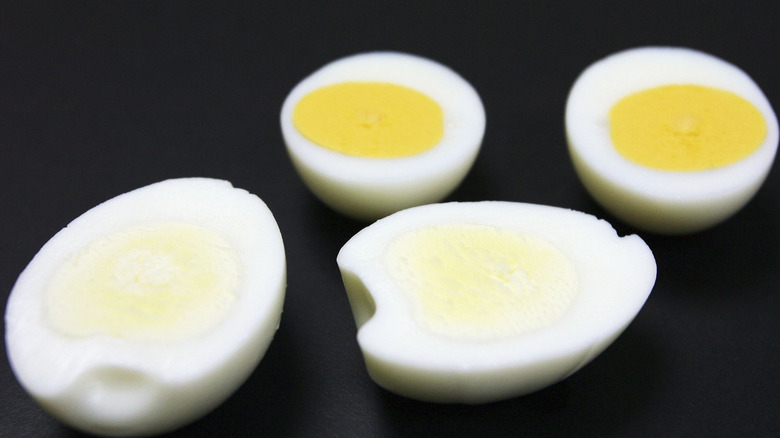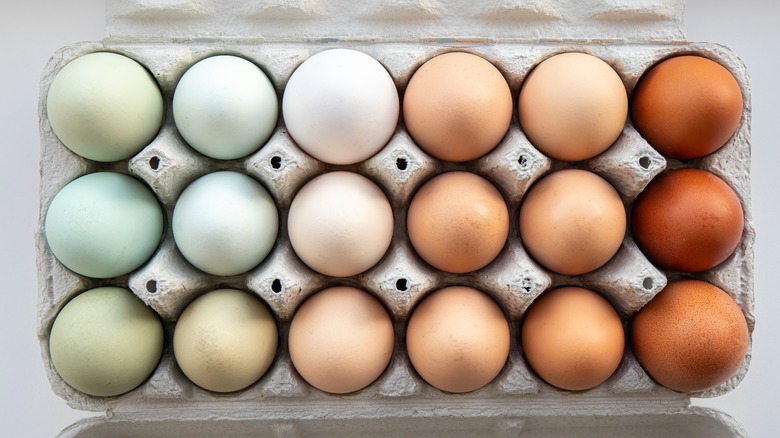Is It Safe To Eat An Egg With A White Yolk?
With a seemingly constant inundation of news stories about foodborne illnesses and FDA grocery recalls, it can make shoppers a little skeptical when encountering something completely new in a food they'd previously thought they knew everything about. Add to that the particular concerns about shelf life, storage, and the dreaded salmonella when it comes to eggs, and something out of the ordinary can be even more anxiety-inducing. So what do you do when you find an egg with a white yolk? Is it safe to eat? Quite simply, yes.
If everything else is okay with the egg, white yolks are perfectly safe to eat. From very light yellow to almost paper white, they're all safe. The color of an egg yolk simply has to do with what the chicken eats. The lighter the yolk, the fewer pigments in the food the hen consumed. Light yellow or white yolks are often the result of a diet of wheat, white corn, or sorghum. The eggs throughout North America are usually bright yellow because the hens are fed a diet largely made up of yellow corn or alfalfa. When a yolk is dark yellow to orange, the hens are likely free range, eating foods higher in red-pigmented carotenoids. Free range eggs often become an even darker shade of orange in the summertime, when the hens are eating even more carotenoid-rich foods.
Are darker egg yolks more nutritious and do they taste different?
If you're wondering whether darker egg yolks are more nutritious or if they taste different, the answer is no, not really. Some hens receive diets with higher levels of Vitamin D or Omega-3 fatty acids to fortify their eggs, but this isn't the norm, and they have to consume huge quantities. Generally, if the hens are healthy, the eggs are equally nutritious. Because Americans prefer golden or bright yellow eggs, colorings are sometimes added to their meal to make their yolks more yellow. As for taste, there isn't any proof, you'll just have to decide for yourself.
Furthermore, some people mistakenly believe that eggs with white or brown eggshells have different nutritional values — most often, that brown eggs are healthier. This is simply not true. The nutrition in any given egg is based on what the hen eats and the size of egg it produces. Some breeds produce much larger eggs. The more vitamins and nutrients a hen consumes, the healthier its eggs will be; and the larger the egg, the more calories and protein contained within. It's also worth noting that the egg white isn't the only protein-rich part of the egg, egg yolks actually contain around 43% of an egg's total protein.


